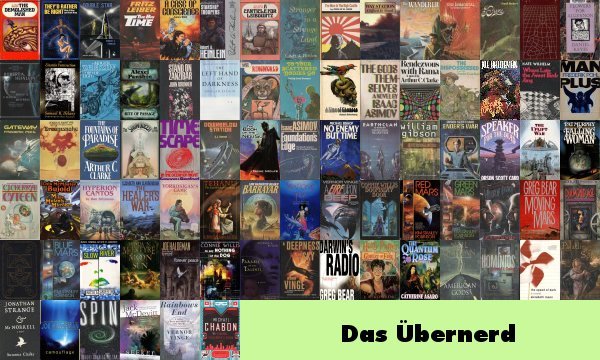 League of Extraordinary Gentlemen Volume 1
League of Extraordinary Gentlemen Volume 1Written by Alan Moore
Art by Kevin O'Neill , Ben Dimagmaliw, and Bill Oakley
2000, 2001 Eisner Award Winner for Best Writer
I hadn't planned on making this "Alan Moore week" but I did want the comics I was talking about to have a connected theme. I scanned the list of winners for anything Victorian, about serial killers, or public reaction to violence and the only thing that I could pull off my shelves was this.
In 1999 Alan Moore, who is British, started his own line of comics ironically called America's Best Comics. He wrote the majority of the line and consequently the quality suffered. While there is little of it I would consider bad, Moore wallowed in simplified stories and homages. The League of Extraordinary Gentlemen is where this comes to a head: it takes a rich texture from nineteenth century adventure stories but the story he tells with them initially doesn't match the strength of the premise.
When something threatens the stability of the British Empire her majesty's government recruits a team special operatives. When a Chinese criminal mastermind steals the anti-gravity material cavorite from a planned moon mission to mark the start of the twentieth century Campion Bond and M recruit Mina Murray nee Harker, Captain Nemo, Alan Quartermain, Dr. Henry Jekyll, and Hawley Griffin to get it back.
The best thing about The League of Extraordinary Gentlemen is it's immersion in nineteenth century literature. From the first page's introduction of major characters with literary connections to the last page where a new threat straight from a turn of the century novel arrives the book is packed with references. Anyone with even a passing familiarity of the books from that period will pick up on a lot and there's definitely entertainment to be found in spotting them.
As part of this Moore does a great job in integrating his cast. He extends the cast's history logically. Murray becomes a scandalized Victorian woman due to the sexual connotations of Dracula. Quartermain has lost himself him opium. Nemo finds himself standing against the British treatment of India. As Jekyll's sins have grown Hyde has grown as well. And Griffin has abandoned any concept of morality along with visibility. It's a terrific set of characters with built in tensions.
The problem is that references are not a story and that's where League falls down. I couldn't bring myself to care about the conflict between the unnamed Fu Manchu (who is still protected by copyright and so can only be referenced) and other forces. It's a story straight out of the early days pulp fiction and I don't mean that in a good, entertainingly campy kind of way. The conflicts are anticlimactic because the focus was on the characters and their pitched battles aren't interesting. They're quick flashes of big moments rather than a smoothly told tale.
 That sums up the plot nicely. It jumps from big moment to big moment with little in the way of bridge between them and that's a shame because the quieter moments are far more interesting than action. I'm more interested in Quartermain and Nemo's tense but polite conversation over the treatment of Africa than I am at Hyde tearing through an army of mooks. I find the contrast between Griffin's embracing amorality and Jekyll struggling to retain it more intriguing than an aerial battle over London. There's too little of those explorations in between the action sequences and literary references.
That sums up the plot nicely. It jumps from big moment to big moment with little in the way of bridge between them and that's a shame because the quieter moments are far more interesting than action. I'm more interested in Quartermain and Nemo's tense but polite conversation over the treatment of Africa than I am at Hyde tearing through an army of mooks. I find the contrast between Griffin's embracing amorality and Jekyll struggling to retain it more intriguing than an aerial battle over London. There's too little of those explorations in between the action sequences and literary references.Kevin O'Neill does some interesting work in this series by using an impressionistic style that distorts many of the figures. The women in particular are twisted out of shape thanks to Victorian fashions and his rendition of Edward Hyde as an animalistic mockery of humanity is great.

I enjoyed The League of Extraordinary Gentlemen on the level of "Victorian literature filtered through superheroes" but beyond that there wasn't much there. If you like the works of Verne and Wells then you'll probably get a kick out this. I can't call it brilliant, though, since it never rises above the level of an homage.
